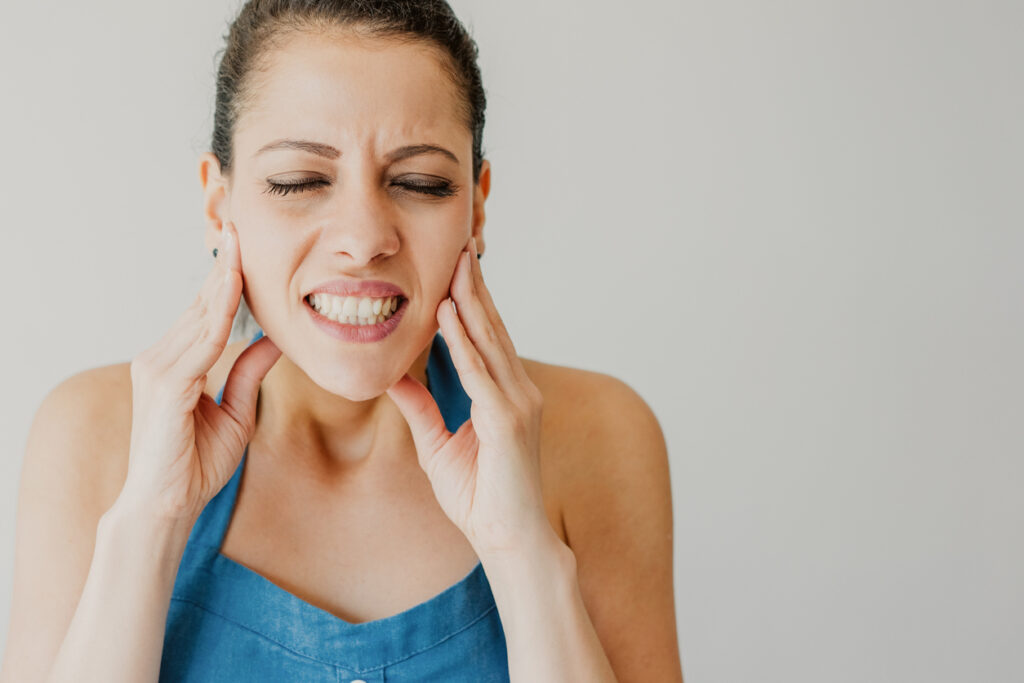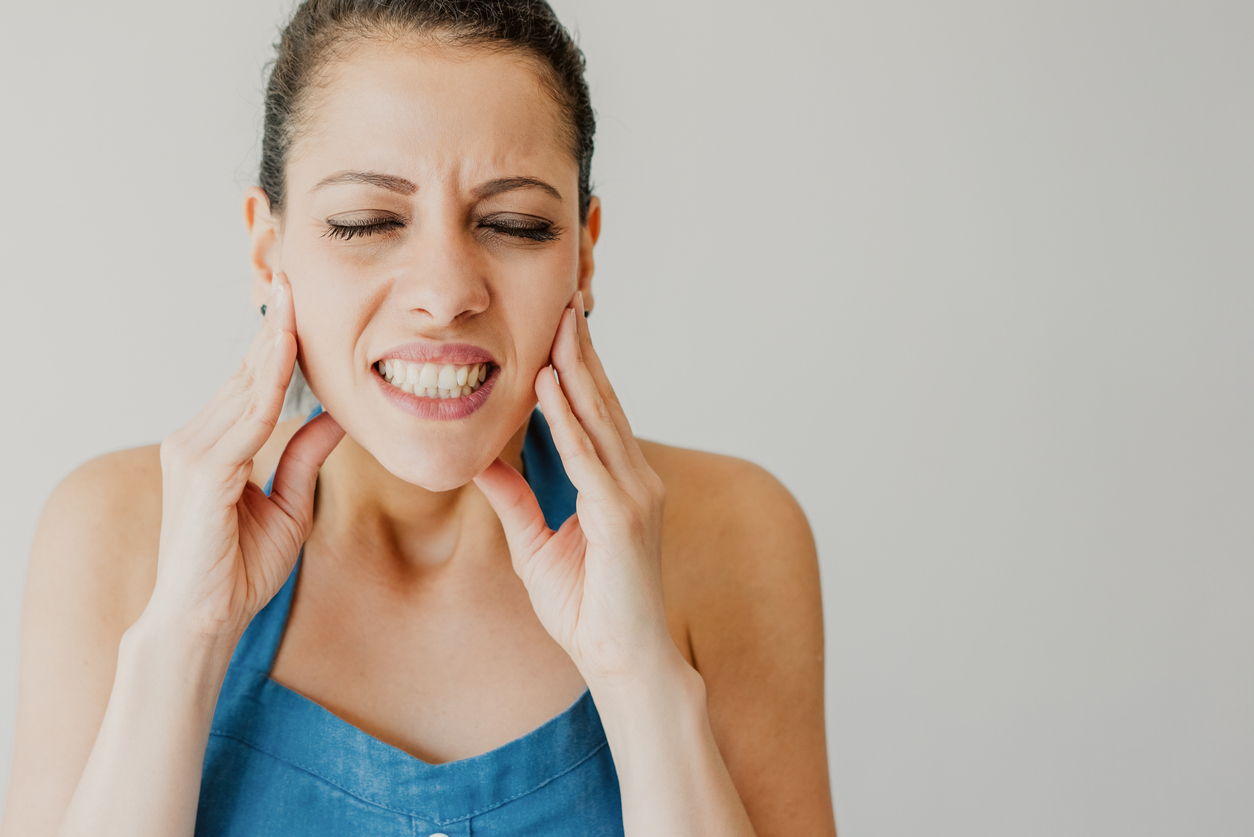TMJ Disorders, Temporomandibular joint syndrome, is a disorder of the jaw muscles and nerves caused by injury or inflammation to the temporomandibular joint. The temporomandibular joint is the connection between the jawbone and the skull.

Temporomandibular dysfunction includes a wide range of disorders that often overlap. They include muscle problems that often affect jaw movement, pain in the face around the jaw joint and problems within the joint itself.
This makes diagnosis and treatment challenging. An accurate diagnosis is critical for successful treatment. TMD’s can cause severe pain for some, and effects in varying degrees, 33% of people over their lifetime.
Causes of TMD-TMJ Disorders
Medical professionals do not completely understand the causes of TMD. Multiple factors contribute to the muscle tightness and dysfunction that characterize this condition. It is not clear whether some of these causes directly lead to TMJ syndrome or if they are a result of the disorder.
Causes may include: misalignment (malocclusion) of or trauma to the teeth or jaw, teeth grinding (bruxism), from stress or anxiety, arthritis and other inflammatory musculoskeletal disorders, and excessive gum chewing.
Life Altering Effects
In severe cases, pain in the TMJ can have life altering effects. Diagnosis should be made by a medical professional who can determine what type of TMD you’re are suffering from as there is a wide spectrum of disorders. Many symptoms of TMJ disorders can respond well to home remedies or stress reduction and relaxation techniques.
The following home remedies may provide some relief: Ice or cold packs to the area of the joint, Over-the-counter (OTC) nonsteroidal anti-inflammatory drugs (NSAIDs), such as ibuprofen (Advil, Motrin) or naproxen (Aleve), and other pain relievers, including aspirin (Ecotrin) and acetaminophen (Tylenol). Eating soft foods and avoiding chewing gum. Massage or gentle self-stretching of the jaw and neck muscles (A doctor or physical therapist can recommend appropriate stretches.)

Relief from the Pain Symptoms
When home remedies are not effective, medical treatment options may be necessary. Most of these types of treatments and remedies will not cure TMD, but they can provide temporary and even long-term relief from the pain symptoms. These include the following:
- Dental splint (occlusal splint or stabilization splint or bite guard), which is a dental appliance placed in the mouth that keeps the teeth in alignment and prevents tooth grinding. This resembles a mouth guard and is usually prescribed and fitted by a jaw specialist.
- A medical professional may use Botox to relax the muscles of the jaw. However, this is not currently an FDA-approved treatment for TMD.
- Physical therapy with jaw exercises can strengthen muscles, improve flexibility, and range of motion. Trigger point acupuncture can be helpful.
If you suffer from TMD, please let us know. The discomfort can be worsened by long periods of mouth opening and we try to accommodate this to make your appointments easier. We would love to discuss your options for treatment and may refer you to a specialist for further treatment. As always please ask us if you have any questions.
References
Mayo Clinic – https://www.mayoclinic.org/diseases-conditions/tmj/symptoms-causes/syc-20350941
Canadian Dental Association – https://www.cda-adc.ca/en/oral_health/talk/complications/temporomandibular_disorder/
American Family Physician-Diagnosis and Treatment of Temporomandibular Disorders – https://www.aafp.org/afp/2015/0315/p378.html
Treatment of Temporomandibular Disorders: A Clinical Perspective – https://www.ncbi.nlm.nih.gov/pmc/articles/PMC2813497/

Experience exceptional dental care at Safe Harbor Smiles, where our dedicated team prioritizes your comfort and health while crafting personalized treatment plans tailored to your family’s needs.

